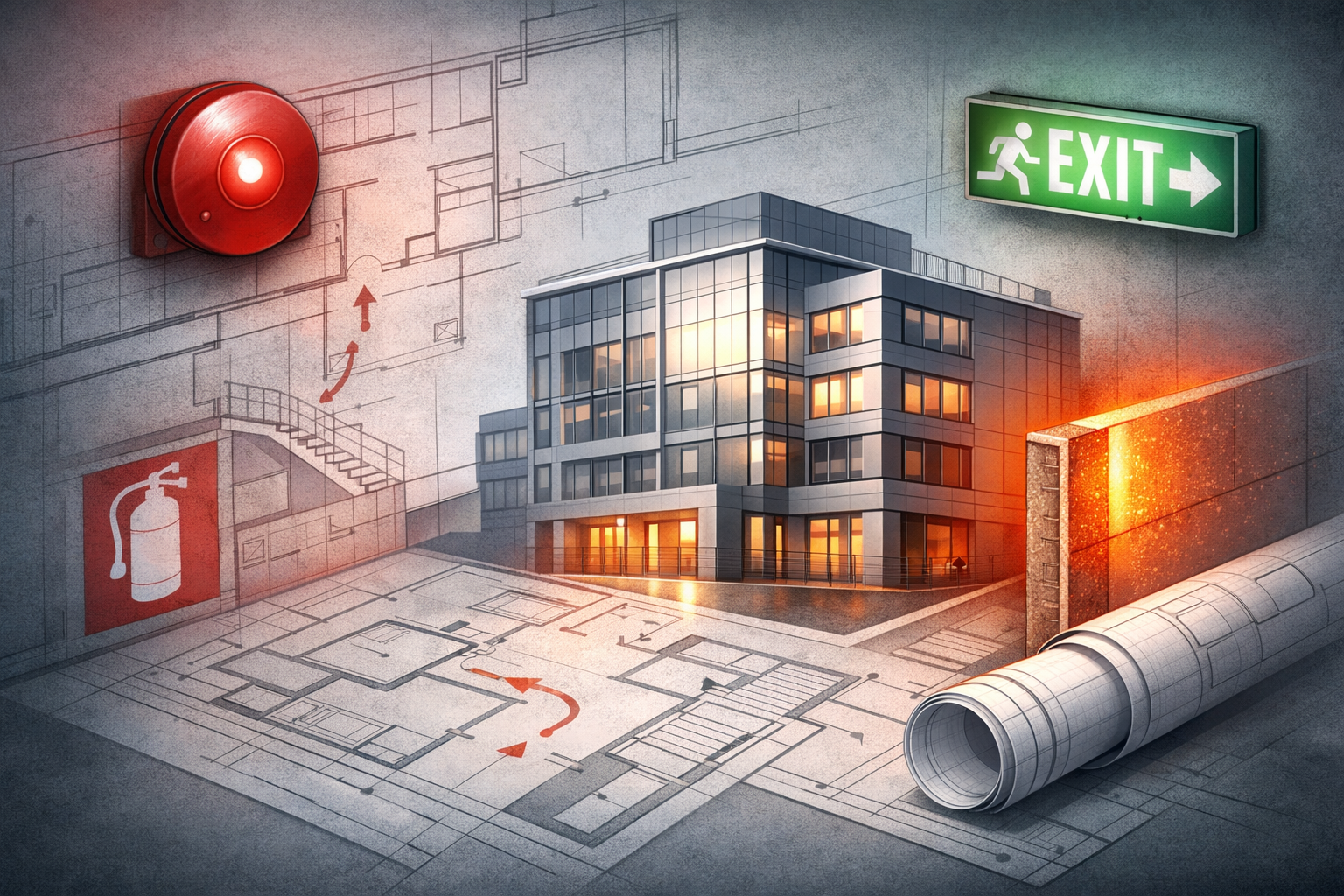When it comes to protecting property and lives, fire alarm systems play an essential role in providing early detection and warning in case of fire. Whether you’re responsible for a home, business, or public building, understanding the different types of fire alarm systems available can help you make an informed decision about the best solution for your premises. In this blog, we’ll take a closer look at the main fire alarm systems and how they work, helping you choose the most suitable option for your needs.
Why Are Fire Alarm Systems Important?
The primary function of a fire alarm system is to detect a fire in its early stages and alert occupants to evacuate safely. Fire alarm systems are designed to prevent the spread of fire, reduce damage to property, and most importantly, save lives. With such a critical role, selecting the right system is vital to ensuring maximum safety.
1. Conventional Fire Alarm Systems
One of the most traditional types of fire alarm systems, conventional systems divide a building into zones. When a fire detector or call point is triggered, the fire alarm control panel identifies the zone where the alert originated. However, it doesn’t provide an exact location, so additional investigation may be needed to find the fire.
Best suited for: Smaller buildings with a limited number of rooms, such as small offices or retail spaces.
Advantages:
- Cost-effective and straightforward to install.
- Reliable for small-scale applications.
Disadvantages:
- Only provides zone identification, not precise locations of the fire.
- Can be less efficient in larger buildings.

2. Addressable Fire Alarm Systems
Addressable fire alarm systems are more advanced and provide detailed information about the exact location of a fire. Each device, whether it’s a smoke detector or heat sensor, has its own address, enabling the control panel to pinpoint precisely where the alarm was triggered.
Best suited for: Larger premises, such as schools, hospitals, or large office complexes.
Advantages:
- Pinpoints the exact location of the fire.
- Easier to maintain and monitor due to more detailed system reporting.
- Can accommodate a greater number of devices.
Disadvantages:
- More expensive than conventional systems.
- Installation can be more complex due to the detailed wiring and setup required.

3. Wireless Fire Alarm Systems
Wireless fire alarm systems offer the same functionality as addressable systems but without the need for hardwiring between devices and the control panel. Instead, these systems use radio frequencies to communicate, making them ideal for buildings where installing cables may be difficult or costly.
Best suited for: Buildings with complex layouts or historical buildings where wiring could be problematic.
Advantages:
- Quick and easy installation without the need for extensive cabling.
- Flexible and scalable, making it easy to add new devices as needed.
- Minimises disruption during installation.
Disadvantages:
- Can be more expensive than wired systems.
- Requires regular battery maintenance for wireless devices.

4. Hybrid Fire Alarm Systems
Hybrid fire alarm systems combine the strengths of both conventional and addressable systems. In a hybrid system, conventional zones and addressable devices can be integrated into one system, offering flexibility for more complex buildings. This allows businesses to upgrade specific areas with addressable technology while still using conventional systems where appropriate.
Best suited for: Buildings with varying fire detection needs across different areas.
Advantages:
- Offers a cost-effective way to upgrade parts of an existing system.
- Flexibility to combine conventional and addressable devices.
Disadvantages:
- Can be more complex to install and maintain.
- Requires careful planning to ensure the correct integration of different systems.

Choosing the Right Fire Alarm System
Selecting the right fire alarm system depends on several factors, including the size of the building, the layout, and specific fire risks. For smaller buildings, a conventional fire alarm system may be sufficient, providing reliable protection at an affordable cost. In larger or more complex properties, an addressable or wireless fire alarm system offers better coverage, faster response times, and easier maintenance.
Hybrid systems are often chosen for larger facilities that require a mix of fire alarm solutions to meet varying needs across different areas. It’s always advisable to consult a professional fire safety expert when deciding on the right fire alarm system for your premises.
In addition to fire alarms, don’t forget that fire doors are also crucial for containing and preventing the spread of fire. Highland Services offers expert fire door installation services, ensuring that your building is fully protected with high-quality doors that meet all necessary fire safety standards.
Maintaining Your Fire Alarm System
No matter which type of fire alarm system you choose, regular maintenance is essential to ensure the system functions correctly. Fire alarm systems should be tested regularly, and all devices, including detectors and control panels, must be kept in good working order. Many fire alarm systems, especially wireless and addressable ones, offer remote monitoring and testing features, making maintenance easier and more effective.
By understanding the different types of fire alarm systems, you can make a well-informed choice that ensures the safety of your property and its occupants. Fire safety is a critical responsibility, and choosing the right fire alarm system is the first step in protecting against the dangers of fire.
For advice on installing or maintaining your fire alarm system, Highland Services offers professional expertise to help you safeguard your premises. Reach out to our team today!




.png)